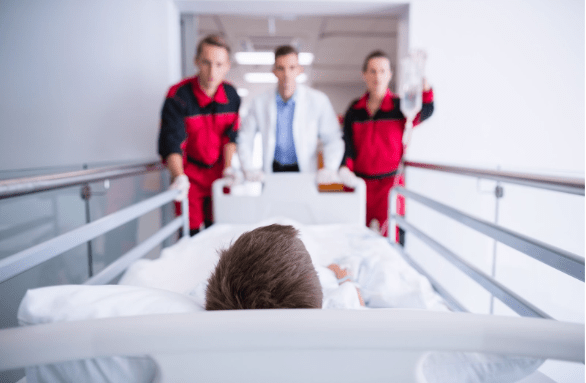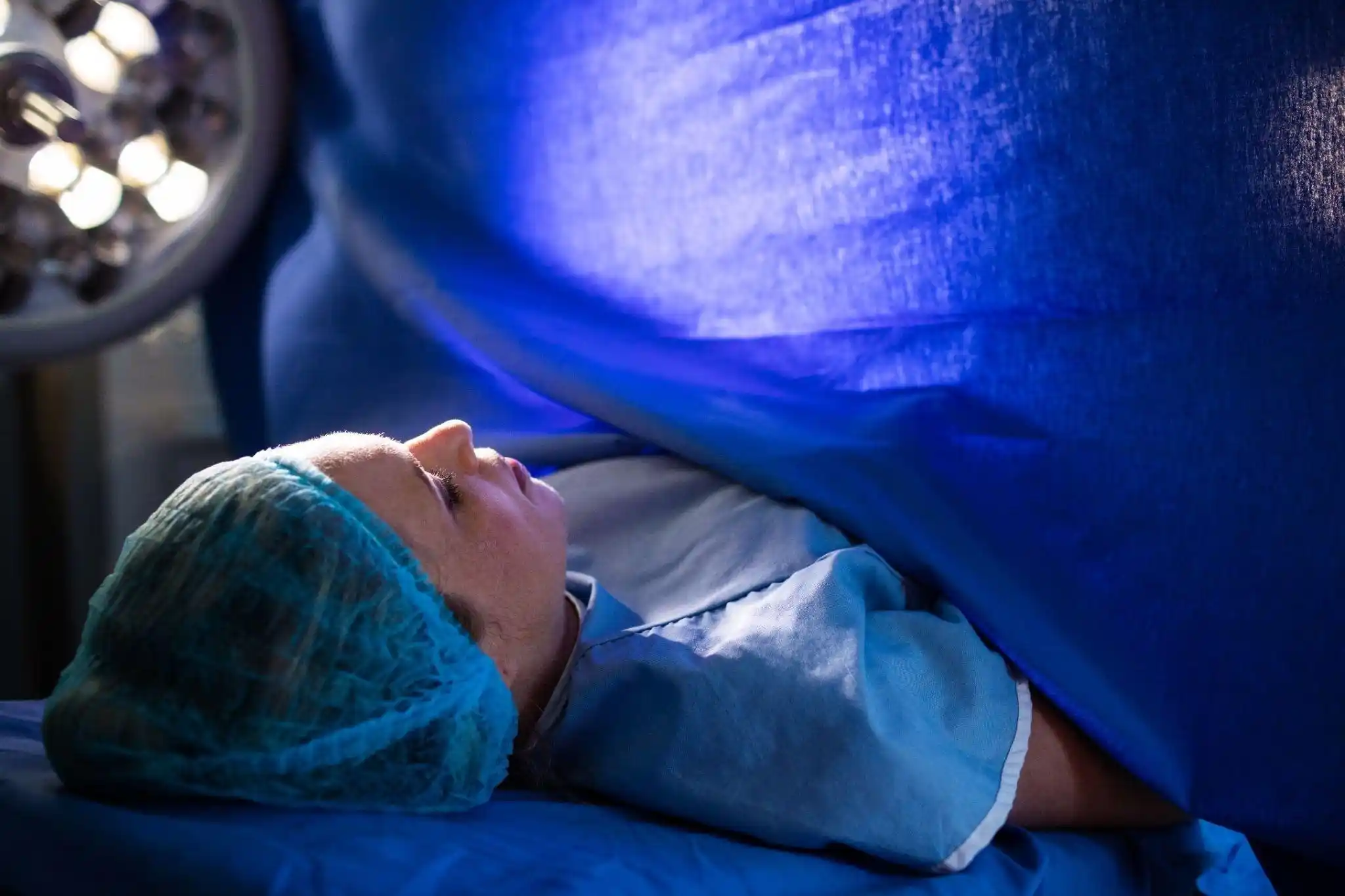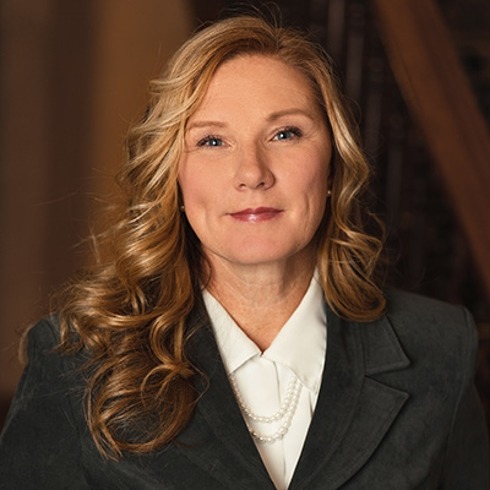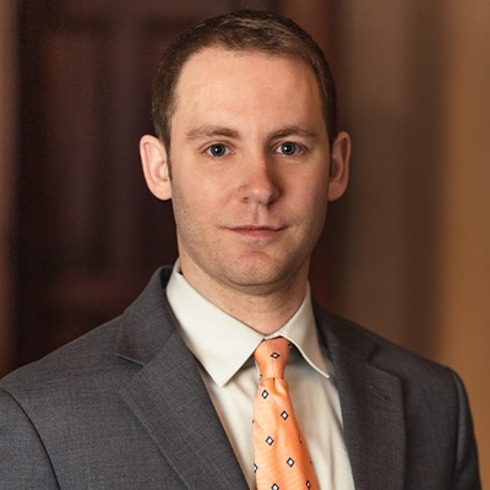Indianapolis Cerebral Palsy Attorney
Helping people is our priority



Since 1993

When your child is diagnosed with Cerebral Palsy, it can feel like your world has been turned upside down. But amidst the chaos, it’s important to remember that there are relief options provided by the law and it’s why Christie Farrell Lee & Bell and our Indianapolis Cerebral Palsy lawyer is here to help you.
These legal provisions are designed to help you and your family navigate through these tough times, offering financial support and resources to ensure your child receives the care they need. Those can include medical appointments, therapy sessions, and other common financial strains that families need to face.
The Impact of Cerebral Palsy on a Patient’s Life
Cerebral Palsy (CP) is a neurological disorder that affects muscle coordination and body movement. It is the most common motor disability in childhood, affecting approximately 2 to 3 children per 1,000 births according to the Centers for Disease Control and Prevention (CDC).
Cerebral Palsy is a complex condition that affects each individual differently. The symptoms can range from mild to severe, impacting various aspects of a child’s life. These may include:
- Muscle weakness and tone
- Impaired muscle and motor coordination
- Rigid, stiff, and uncontrollable movement
- Reduced movement of the extremities
- Misalignment or abnormal body positioning
- Seizures
- Delayed development
The impact of Cerebral Palsy on a child’s life can be profound, affecting their ability to perform basic tasks and participate in normal childhood activities. It can also place a significant emotional and financial burden on families as they navigate ongoing medical care and therapy.
That’s one of the main reasons why families come to us to claim fair compensation that cover all the medical bills and ongoing treatments. But before presenting a claim, it’s important to evaluate your case, determine which healthcare providers were negligent, and calculate a fair amount to claim.
Speak with a personal injury lawyer today. Call: 317-488-5500
Medical Malpractice and Cerebral Palsy
Medical malpractice is a term that refers to a healthcare provider’s deviation from the accepted standard of care during the treatment of a patient, which results in injury or even wrongful death. In the context of Cerebral Palsy, medical malpractice can occur due to errors during the delivery process, failure to detect or treat infections in the mother during pregnancy, or failure to detect or treat complications during pregnancy and delivery.
In Indiana, the laws governing medical malpractice are quite specific. According to the Indiana Medical Malpractice Act, healthcare providers are required to maintain a certain standard of care. If this standard is not met, and a patient is injured as a result, the healthcare provider can be held liable for medical malpractice.
The law also outlines the process for filing a medical malpractice claim, which includes a review by a medical panel before the case can proceed to court. This review process is designed to weed out frivolous claims and ensure that only legitimate cases move forward.
Complete a Free Case Evaluation form now
How Our Indianapolis Cerebral Palsy Lawyers Can Help
At Christie Farrell Lee & Bell, we understand the complexities involved in Cerebral Palsy cases. Our team of experienced personal injury attorneys is prepared to guide you through the legal process, providing the support and expertise you need to seek justice for your child.
Case Evaluation
We begin by reviewing your case to determine if medical negligence may have contributed to your child’s Cerebral Palsy. This involves a detailed analysis of medical records, consultation with medical experts, and a thorough understanding of the circumstances surrounding your child’s birth and diagnosis.
Identifying Responsible Parties
Not all cases are considered medical negligence. However, when negligence is involved, it’s often the case that more than one party is responsible. Our attorneys will work diligently to identify all potential defendants in your case.
Pursuing Compensation
If your child’s condition is the result of medical negligence, you may be entitled to compensation for medical expenses, future care costs, pain and suffering, and other damages. We will aggressively pursue the maximum compensation available under Indiana law.
Legal Representation
From negotiating with insurance companies to representing you in court, our attorneys will stand by your side every step of the way. We are committed to advocating for your rights and the rights of your child.
Click to contact us today
Common Causes of Cerebral Palsy
This neurological disorder affects movement, muscle tone, and posture, and it is caused by damage to the developing brain, often before, during, or shortly after birth. When this affects your child, understanding the common causes of cerebral palsy is crucial to seek the appropriate care and support. Overall, the common causes of cerebral palsy, are:
- Lack of oxygen: Insufficient oxygen to the brain during labor and delivery can lead to cerebral palsy.
- Premature birth: Babies born prematurely are at a higher risk of developing cerebral palsy due to their underdeveloped brains and organs.
- Infections during pregnancy: Certain infections in the mother during pregnancy can lead to inflammation and damage to the unborn baby’s brain.
- Brain hemorrhages: Bleeding in the brain, especially in premature infants, can result in cerebral palsy.
- Traumatic brain injury: Injuries to the head during or after birth can cause the brain damage associated with cerebral palsy.
Our experienced attorneys are here to help you navigate the complex legal landscape and determine if negligence contributed to your child’s condition. We are committed to advocating for the rights of your family and securing the compensation necessary to support your child’s lifelong needs.
Potential Negligence and Malpractice
Determining if negligence or malpractice caused cerebral palsy involves a thorough investigation into the medical care provided before, during, and after the child’s birth. Medical professionals are expected to adhere to a standard of care, and failure to meet this standard can result in harm to the baby, potentially leading to cerebral palsy.
- Failure to monitor: Medical staff must properly monitor fetal heart rate and respond to signs of distress.
- Improper use of delivery tools: Misuse of forceps or vacuum extractors during delivery can cause brain injuries leading to cerebral palsy.
- Delay in performing a necessary C-section: Delaying a cesarean section in a high-risk situation can result in prolonged oxygen deprivation to the baby.
- Inadequate response to infections: Failing to diagnose or treat infections in the mother during pregnancy can harm the developing baby.
Holding responsible parties accountable, we strive to secure the compensation your family needs to cover medical expenses, ongoing care, and other damages. If you suspect medical negligence played a role in your child’s cerebral palsy diagnosis, contact us for a comprehensive evaluation of your case. Together, we can seek the justice and support your family deserves.
Types of Compensation You Can Claim
When your child is diagnosed with Cerebral Palsy due to medical negligence, the financial implications can be overwhelming. However, under Indiana law, you may be entitled to claim compensation to help cover the costs associated with your child’s condition.
According to the Indiana Code § 34-18-14-3, the total amount recoverable for an injury or death of a patient may not exceed $1,800,000 for an act of malpractice that occurs after June 30, 2019. Here are the types of compensation you may be able to claim:
1. Medical Expenses
This includes the cost of immediate medical care following the birth, as well as ongoing medical costs. These can include doctor’s visits, hospital stays, surgeries, medications, physical therapy, and any other medical treatments your child may need.
2. Future Care Costs
Cerebral Palsy is a lifelong condition, and your child may require ongoing care. Future care costs can include long-term medical treatments, physical and occupational therapy, speech therapy, and the cost of assistive devices like wheelchairs or braces.
2. Pain and Suffering
While it’s difficult to put a monetary value on the physical pain and emotional distress your child has endured, you may be entitled to compensation for pain and suffering. This can also include compensation for the loss of enjoyment of life or loss of companionship.
3. Special Education Costs
Children with Cerebral Palsy often require special education services or accommodations at school. You may be able to claim compensation to cover these costs.
4. Home Modification Costs
You may need to modify your home to accommodate your child’s needs, such as installing wheelchair ramps or special bathroom fixtures. These costs can be included in your claim.
Your Rights Under Indiana Law
In Indiana, parents are entitled to file a medical malpractice claim if they believe their child’s Cerebral Palsy was caused by medical negligence. Instances of negligence can include birth injuries, such as excessive force on the baby’s neck or failure to perform a C-section in a high-risk situation.
According to the law, typically, you have two years from the date of the incident to file a claim. This statute of limitations is crucial as any lawsuit attempted after this period may be dismissed by the court. However, there are exceptions to this rule. If the injury could not have been reasonably discovered within the two-year period, a lawsuit may still be viable.
Contact Us for a Free Consultation – We Can Help You Evaluate Your Case
At Christie Farrell Lee & Bell, we believe in the power of justice. We are committed to helping families affected and who need a lawyer for a Cerebral Palsy diagnosis to navigate the legal system and seek the compensation they deserve.
If your child has been diagnosed with Cerebral Palsy and you believe it was due to medical negligence, don’t hesitate to contact us for a free consultation. Our team in Indianapolis is here to help you seek the justice and compensation your family deserves.
FAQs About Cerebral Palsy
Is Cerebral Palsy Due to Negligence?
While not all cases are linked to medical negligence, there are instances where inadequate medical care or oversight during the prenatal period, labor, and delivery, or immediately after birth may contribute to conditions leading to cerebral palsy. Examples include failure to detect or properly manage infections in the mother during pregnancy, inadequate monitoring of fetal distress, and improper use of delivery techniques.
Determining whether cerebral palsy resulted from negligence requires a detailed investigation into the medical care provided and the standards of practice at the time.
Is Cerebral Palsy a Medical Error?
Cerebral palsy itself is not a medical error but a condition that may result from various factors, including medical errors. Medical errors that could lead to cerebral palsy include mismanagement of childbirth, such as failing to perform a timely cesarean section when needed or using delivery tools inappropriately, leading to brain injury. However, it’s crucial to differentiate between cerebral palsy caused by unavoidable biological factors and that resulting from preventable errors in medical care.
Are Doctors Responsible for Cerebral Palsy?
Doctors and other healthcare providers may be held accountable for cerebral palsy if it’s proven that their actions deviated from the accepted standard of care and directly caused the condition. This accountability can stem from actions taken or not taken during prenatal care, labor and delivery, or postnatal care that led to brain damage or other factors contributing to cerebral palsy.
Establishing a direct link between medical care and cerebral palsy involves comprehensive medical record reviews, expert testimony, and a clear understanding of how the care provided failed to meet established medical standards.
Indianapolis Office
951 N Delaware St Indianapolis, IN 46202
Phone: 317-593-9202

Get a FREE Case Review
Schedule Your Free Consultation


















